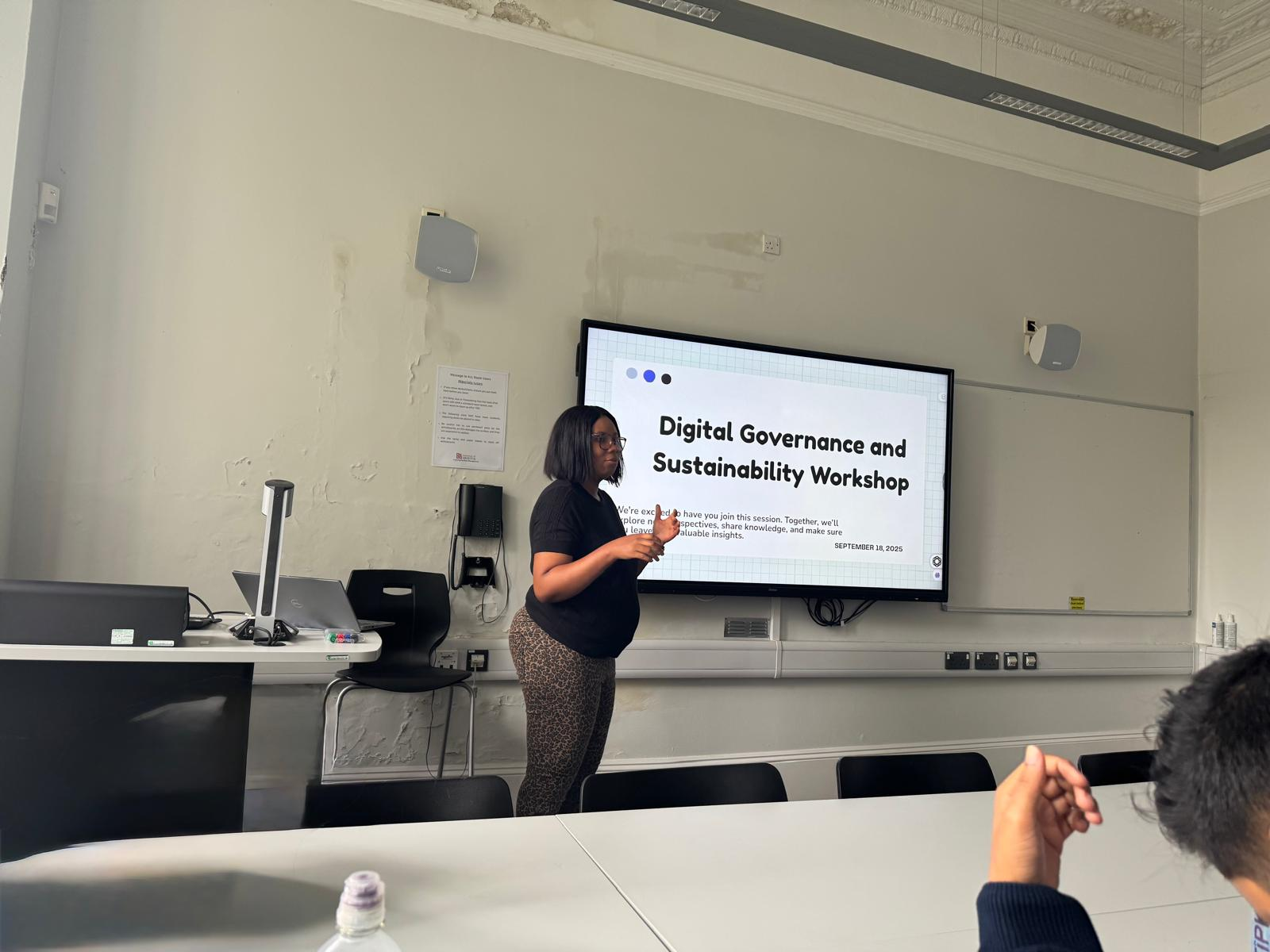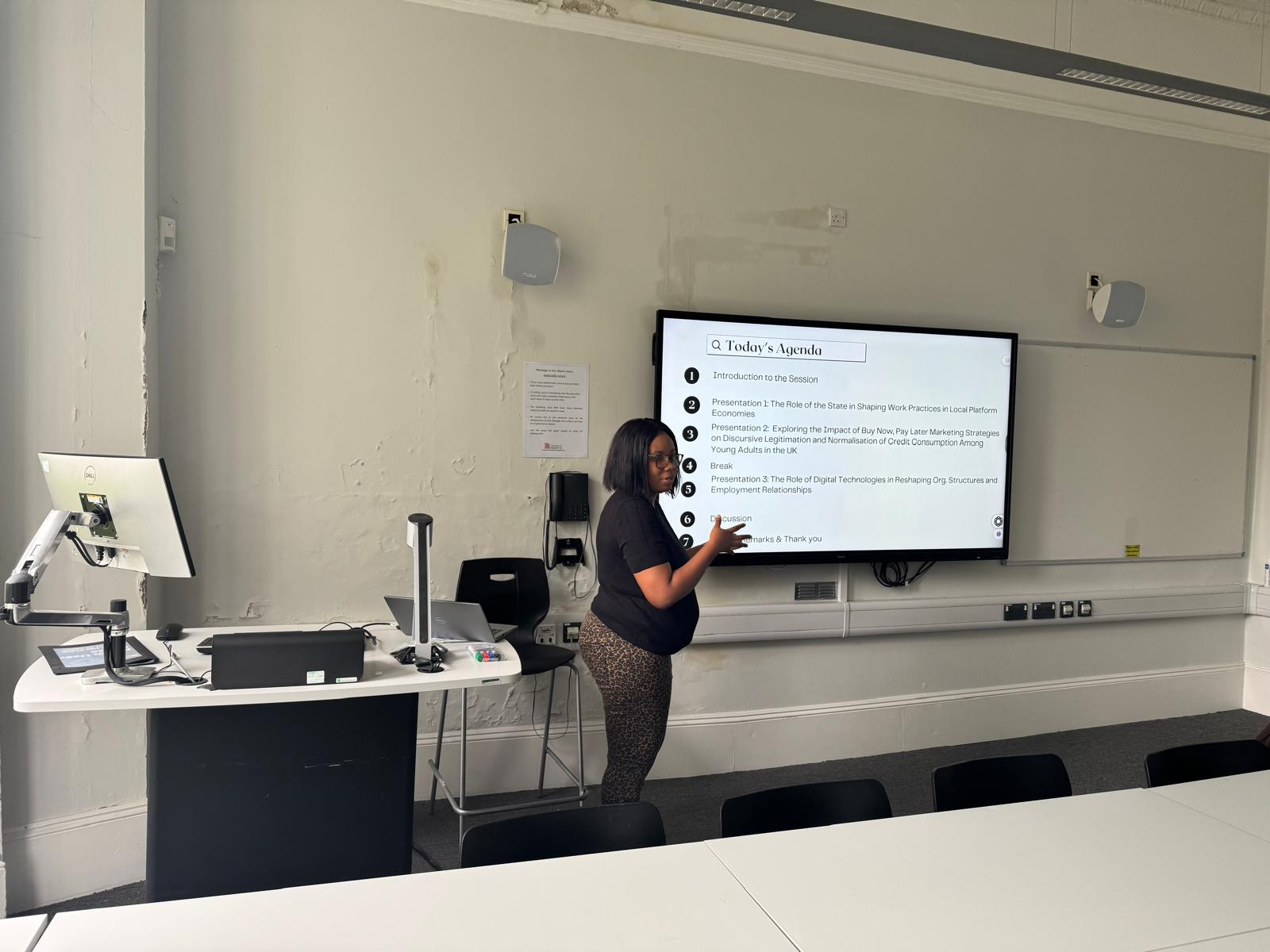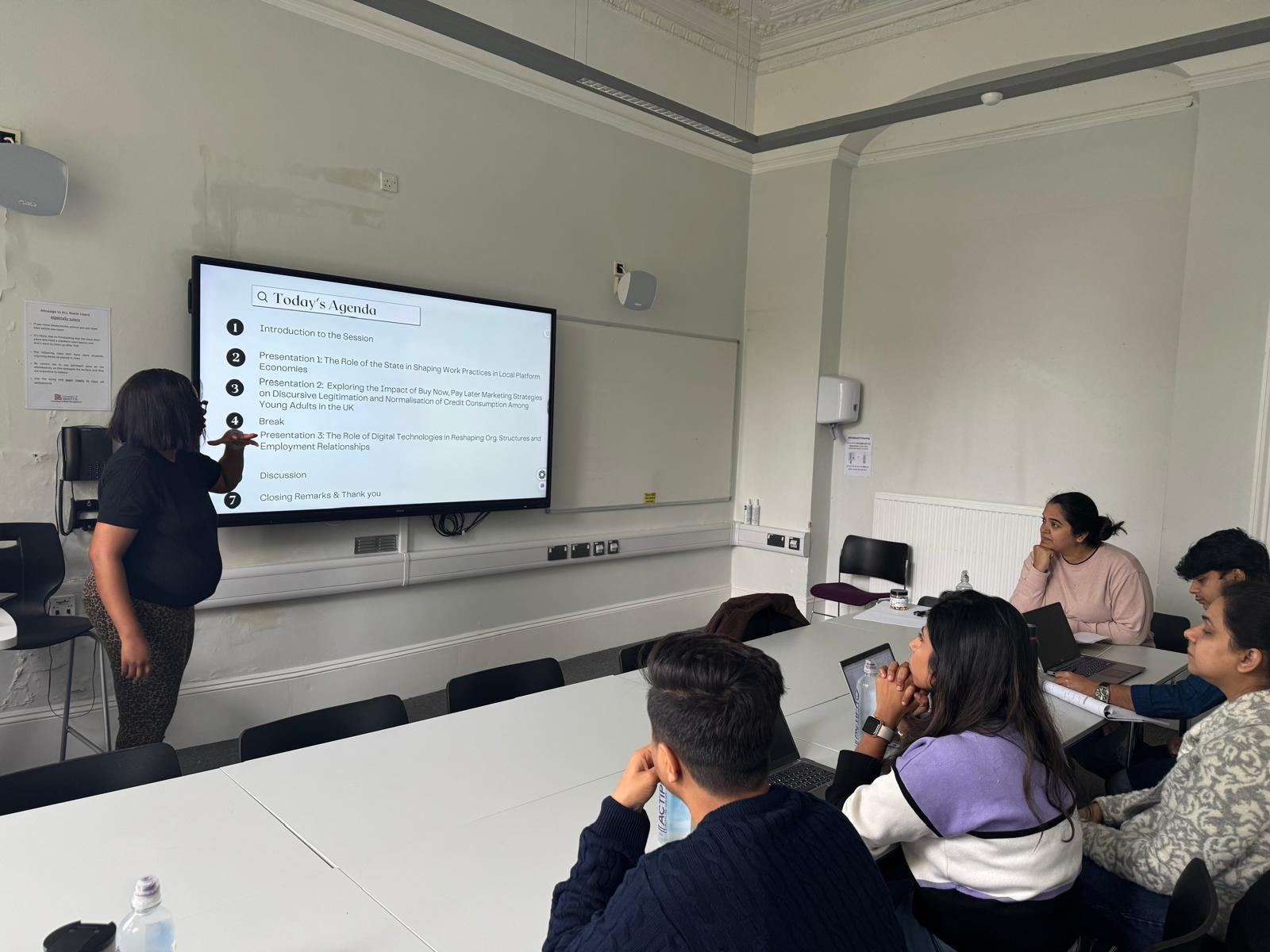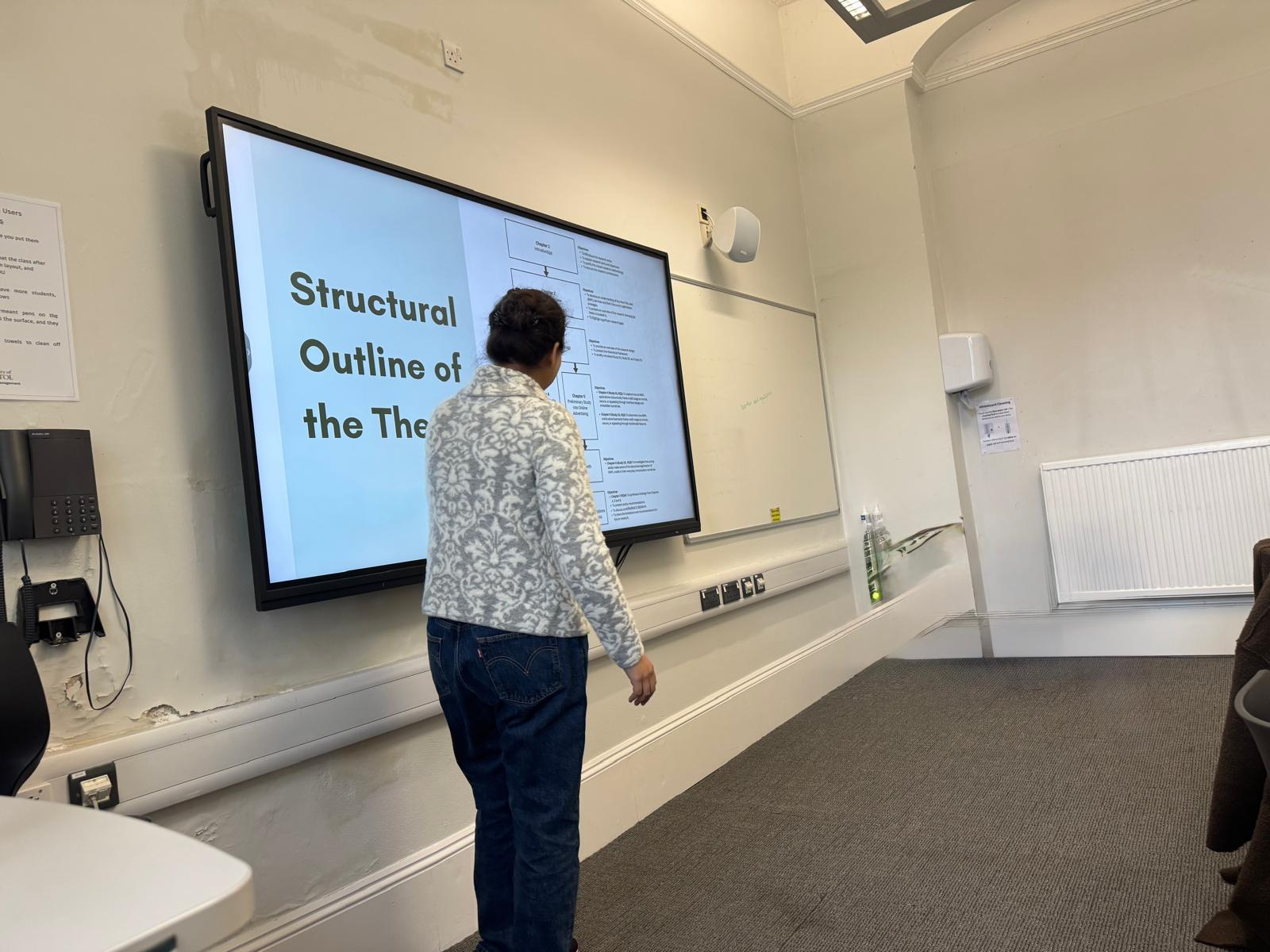Digital Governance: Inter-Firm Coopetition and Legal Frameworks for Sustainability
Date:
September 18th, 2025 (UTC +0)
Organizer:
University of Bristol
Symposium Chair:
Tonejit Gad-Harry
The University of Bristol Business School
Personal Bio:
Tonejit Gad-Harry is in the University of Bristol Business School, with a background in human resource management, leadership, and strategy. Bringing a socio-technical approach to social research, my research interests lie in digitalization, inter-organizational relationships, organisational behaviours and interactions, strategy, leadership, and work futures, as I explore social constructs within technological settings. My current research investigates how technology influences the future of knowledge-intensive work through interactions in synthetic environments while identifying challenges and opportunities for organisations adapting to a rapidly changing digital landscape.
Background
The pervasive influence of digital technologies has ushered in an era of unprecedented connectivity and innovation, fundamentally altering global landscapes. From the rapid advancements in AI to the widespread adoption of big data analytics, the digital age demands a rethinking of traditional governance paradigms. As societies grapple with complex challenges like data privacy, algorithmic bias, automation, and the environmental footprint of technology, these new approaches that explores the governing structures for these new ways of working are critical. Therefore, this symposium is designed to explore two pivotal, yet often understated, mechanisms for navigating this complexity: the strategic collaboration between firms (coopetition) and the proactive integration of sustainability into policy frameworks.
Goal/Rationale:
Overall Aim: To empower participants with actionable insights into how inter-firm coopetition and proactive sustainability policy frameworks can serve as critical instruments for effective governance in the digital age, fostering responsible innovation and collective societal benefit.
- Understanding Digital Governance Challenges: To identify the unique governance complexities presented by rapid digital transformation, including the rapid proliferation of technology, global reach, and ethical dilemmas.
- Exploring Inter-Firm Coopetition: To define inter-firm coopetition in the context of the digital economy, analyze its forms (e.g., data sharing alliances, joint R&D), and assess its potential to drive shared sustainability outcomes.
- Analyzing Sustainability Policy Frameworks: To examine current and emerging policy and regulatory approaches aimed at promoting digital sustainability (e.g., green IT, ethical AI), and their effectiveness in shaping corporate behaviours.
- Identifying Synergies & Tensions: To uncover the dynamic interplay, synergies, and potential tensions between inter-firm coopetition and sustainability policy frameworks in achieving governance objectives.
- Developing Strategic Approaches: To collaboratively explore practical strategies for leveraging coopetition and designing effective policy frameworks to address critical digital age challenges in areas such as data ethics, AI accountability, and environmental impact.
Call for Papers:
This symposium explores the intersection of Digital Governance, Inter-Firm Coopetition, Digital Sustainability, and Policy Frameworks in the context of the digital age. Participants will engage in discussions on the challenges and models for effective oversight and regulation amid rapid technological advancement, the paradoxical strategies of cooperation and competition among businesses, and how digital tools can be utilized to achieve broader environmental and social sustainability goals. The symposium will also cover legal and regulatory frameworks, ethical considerations related to AI and data, and the development of policy instruments that support responsible digital transformation.
Topics
The main topics of this symposium are listed below.
Laws- Cyber Law and Digital Privacy
- AI Ethics and Intellectual Property
- Environmental Law and Climate Policy
- Human Rights and Social Justice
- Labor Law and Gig Economy
- Consumer Protection and Data Security
- Criminal Law and Digital Crime
- Property Law and Blockchain Applications
- Public Health Law and Policy
- Media Law and Freedom of Information
- Comparative Politics and Populism
- International Relations and Global Governance
- Political Economy and Digital Finance
- Climate Policy and Environmental Politics
- Cybersecurity and Digital Governance
- Human Rights and Migration Policy
- Political Philosophy and Ethics in AI
- Public Policy and Social Movements
- Political Polarization and Media Influence
- Public Administration and Domestic Policy
Meanwhile, submissions aligned with the overall conference theme are also welcome.
Culture & Sociology- Digital Sociology
- Sociology of Climate Change
- Migration and Globalization
- AI and Society
- Sociology of Technology
- Social Media Impact
- Post-Colonial Sociology
- Sociology of Mental Health
- Inequality and Social Justice
- Gender Studies in Sociology
- Core Fields (e.g., Theoretical Sociology, Historical Sociology)
- Specialized Areas (e.g., Urban Sociology, Criminology, Rural Sociology)
- Cooperative Pedagogy
- Experiential Pedagogy
- Pedagogy of Differentiation
- Assessment for Learning
- Cybernetic Pedagogy
- Pedagogy of Multisensory Learning
- Behavioral Psychology
- Cognitive Psychology
- Comparative Psychology
- Cross-cultural Psychology
- Developmental Psychology
- Educational Psychology
- Industrial-organizational Psychology
- Social Psychology
Submission
All submitted papers should report original and unpublished work, experimental or theoretical, and are not under consideration for publications elsewhere. All papers should be no less than 4 pages in length and must strictly follow the format of the symposium template. All papers are subject to reviews and edits. Prospective authors are kindly invited to submit full text papers that includes title, abstract, introduction, tables/figures and references. Other styles of papers are not accepted. Please submit your papers in both .doc/.docx AND .pdf formats as attachments via email to [email protected] by the given deadline. It is unnecessary to submit an abstract in advance.
Publication
Accepted papers of the symposium will be published in Lecture Notes in Education Psychology and Public Media (Print ISSN 2753-7048), and will be submitted to Conference Proceedings Citation Index (CPCI), Crossref, CNKI, Portico, Google Scholar and other databases for indexing. The situation may be affected by factors among databases like processing time, workflow, policy, etc.
* The papers will be exported to production and publication on a regular basis. Early-registered papers are expected to be published online earlier.
This symposium is organized by ICILLP 2025 and it will independently proceed the submission and publication process
Ways to Participate
Attendance Onsite
The symposium welcomes participants to attend on-site and share the innovative experiences and researches with the group. Therefore, we provide some general information about the visa application. If you want to attend the symposium on-site, please email the Symposium committee: [email protected]
Highlights:
The symposium on Digital Governance: Inter-Firm Coopetition and Legal Frameworks for Sustainability explored the challenges of digital governance and the development of strategic approaches toward governance objectives. Through brainstorming activities, participants examined the dynamic interplay, synergies, and tensions that shape digital governance frameworks.
The first presentation discussed the role of the state in shaping local platform economies, showing how governments compete with international firms such as Uber and regulate platform workers through competition. The second presentation examined “buy now, pay later” strategies, noting how they normalize credit use among young adults while creating risks for vulnerable groups, highlighting the need for clearer regulations. The third presentation analyzed how digital technologies reshape organizations, employment, and governance, drawing on Orlikowski’s structuration model. Cases such as Amazon’s algorithmic management and Uber v. Aslam illustrated how algorithms act as managers, raising accountability and legal challenges. Despite reforms like the EU AI Act, GDPR, and Spain’s Rider Law, wide regulatory gaps remain.
The symposium concluded with three consensus points: digital governance challenges vary across contexts; employment relationships between platforms and workers must be clearly defined; and greater attention should be given to the security and safety of both users and platform workers.




Access to Symposium: ICILLP 2025 Symposium -- Bristol - YouTube
Visa
In order to ensure the information is correct and up to date, there may be changes which we are not aware of. And different countries have different rules for the visa application. It is always a good idea to check the latest regulations in your country. This page just gives some general information of the visa application.
UK Visa Information
What you need to do
- Check if what you plan to do in the UK is allowed as a Standard Visitor.
- Check you meet the eligibility requirements.
- Check if you need to apply for a visa to visit the UK.
- Apply for a Standard Visitor visa online - if you need one.
Check you meet the eligibility requirements
You must have a passport or travel document to enter the UK. It should be valid for the
whole of
your stay.
You must be able to show that:
- you'll leave the UK at the end of your visit
- you're able to support yourself and your dependants during your trip (or have funding from someone else to support you)
- you're able to pay for your return or onward journey (or have funding from someone else to pay for the journey)
- you'll not live in the UK for extended periods through frequent or successive visits, or make the UK your main home
Check if you need a visa to visit the UK
Depending on your nationality, you'll either:
- have to apply for a Standard Visitor visa before you travel to the UK
- be able to visit the UK for up to 6 months without needing a visa
If you do not need a visa, you must still meet the Standard Visitor eligibility requirements to visit the UK. You may be asked questions at the UK border about your eligibility and the activities you plan to do.










